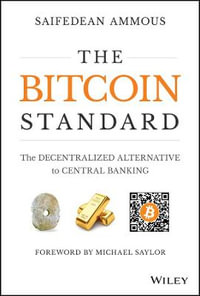Networks in Telecommunications addresses fundamental issues in discussions of regulatory policy by offering an integrated framework for understanding the economics and law of networks. It extends theories on network design associated with the mathematics of graph theory, which provides insights into the complex, systemic interrelationship between network components. It also applies the principles of transaction cost economics to analyze decisions about the appropriate boundaries of proprietary network architecture. The book introduces network theory to the study of the economics and law of telecommunications. The discussion opens up the black box of the cost function in telecommunications. The analysis also goes beyond the 'network externalities' approach that focuses primarily on the size of networks. The book highlights the effects of network architecture and the tradeoffs inherent in network design.
Industry Reviews
'Setting the terms and conditions at which competitors gain access to another firm's network is today's key regulatory issue in many sectors. The authors' technically innovative approach and their deep grasp of market economics present a major challenge to current thinking, which has to be confronted.' Martin Cave, Director, Centre for Management under Regulation, University of Warwick
'Spulber and Yoo have made a signal contribution to the burgeoning literature on network industries. Their ability to carry the analysis forward from the fundamentals of graph theory to the complex legal issues that surround the development of modern communications law offers a soup-to-nuts treatment of immense value to economists, lawyers, and policy makers of all stripes. By showing the extensive role of markets in these complex environments, Spulber and Yoo may help reverse the creeping trend toward overregulation captured in such misleading phrases as network neutrality.' Richard Epstein, James Parker Hall Distinguished Service Professor of Law, and Director, Law and Economics Program, University of Chicago
'For a technologist who tries to operate in the policy and legal space, this book provides a painless and deep introduction to the economic and legal underpinnings of the network domain. It accomplishes this task in a manner that provides a comfortable mathematical and descriptive exploration that can be easily understood and appreciated. I can strongly recommend this book to my colleagues who find the normal descriptions of law and economics to be as confusing to a technologist as most technical books are to a lawyer and economist.' David Farber, Distinguished Career Professor of Computer Science and Public Policy, Carnegie Mellon University
'Come explore the frontiers of law and economics for telecommunications with Professors Spulber and Yoo. A must-read for issues ranging from access pricing to network neutrality.' Harold Furchtgott-Roth, President, Furchtgott-Roth Economic Enterprises, and former Commissioner, Federal Communications Commission
'Spulber and Yoo provide a provocative and innovative perspective on pricing in network industries. By opening the black box of networks, the authors provide important new insights for researchers and policy makers alike. Superb exposition renders sophisticated discussions broadly accessible. A must-read!' David Sappington, Director, Public Policy Research Center, University of Florida
'This challenging book provides an important advance in the legal and economic analysis of networks. It convincingly critiques the failure of regulatory policy to consider networks as integrated and interactive systems and sets out a thought-provoking framework for understanding the economic interactions among the components of a given network structure. This is a valuable contribution for network scholars and policy makers alike.' Howard Shelanski, Director, Berkeley Center for Law & Technology, University of California at Berkeley
'The authors brilliantly succeed in providing novel insights into the complexity of telecommunications networks. They use an intuitive and illustrative approach well accessible to nontechnical readers. Many counterintuitive examples show interferences of access regulation and competition with efficient network planning. The insights are highly relevant for academics, practitioners, and regulators. The analysis suggests that regulators may want to proceed carefully and that more research on the economic effects of network topologies will be a fruitful undertaking.' Ingo Vogelsang, Boston University
'In the light of technological convergence and the emergence of facility-based competition their arguments constitute an important challenge to other economic theories supporting regulation in this industry.' Giuseppe De Feo, Telecommunications Policy
























